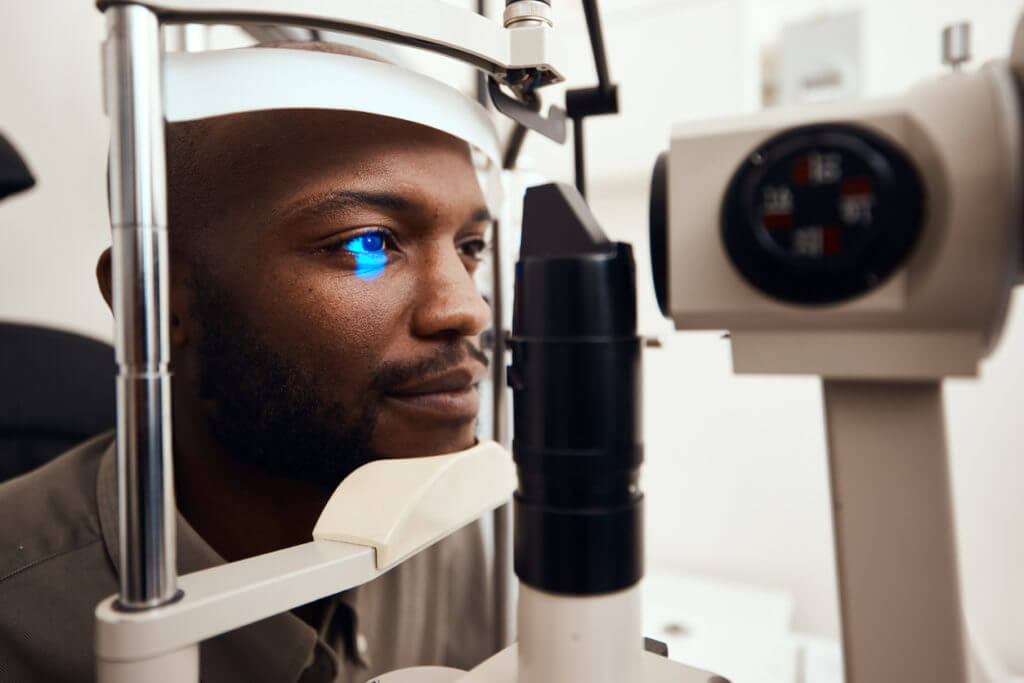
We rely on our sense of sight for much of the information we absorb every day as well as for our ability to safely perform our day-to-day activities and to interact with the world around us. Developing a vision problem can result in not only significant quality-of-life issues but also in an increased risk for accidents and injuries.
It goes without saying that we need to be proactive and intentional about our eye health—and this means regularly seeing an eye specialist (ophthalmologist). Let’s delve into the importance of seeing an ophthalmologist in ensuring the optimal health and function of our eyes.
Prompt Detection of Eye Problems
An ophthalmologist conducts comprehensive eye exams to detect any vision changes, which are the common signs of refractive errors (e.g., nearsightedness, farsightedness, astigmatism, and presbyopia), and devise the appropriate treatment plan.
To correct refractive errors, an ophthalmologist recommends any of the following interventions:
- Corrective lenses (glasses or contact lenses)
- LASIK surgery
- Implantable contact lenses- for nearsightedness (may be recommended when laser procedures aren’t able to correct the problem).
Regular, comprehensive eye exams can also help detect potential signs of eye diseases or other abnormalities before they present any symptoms, or when they are most treatable.
Eye conditions, such as glaucoma, cataracts, and age-related macular degeneration, if not managed properly, can lead to vision loss. By detecting problems early on, your ophthalmologist can establish a suitable treatment strategy to prevent such potentially irreversible complication.
An ophthalmologist may also be able to detect signs of broader health problems during an eye examination, such as diabetes, high blood pressure, and some abnormalities that can occur in the fine blood vessels in the back of the eye before they are recognized in other parts of the body.
During an eye exam, your ophthalmologist will likely carry out the following types of assessments:
- Slit-lamp examination- to inspect the lens, cornea, iris, fluid chamber (between the iris and cornea), eyelids, and lashes- to check for signs and symptoms of eye diseases and injuries;
- Retinal examination- to evaluate the back of the eye including the retina, optic disc and blood vessels;
- Glaucoma screening test;
- Eye muscle test – to check for poor coordination or control and muscle weakness;
- Visual acuity test – to measure how clearly you can see at a distance
- Refraction assessment – to test your vision and determine whether corrective lenses or other treatments are necessary.
- Visual field test – to assess the extent you can see to the sides without moving your eyes.
- A color vision test – to check if you have a color deficiency.
When and How Often Should I See an Ophthalmologist?
How often you need to undergo an eye exam hinges on several factors, including your age, overall health, and risk factors for eye disease.
Healthy adults, with no symptoms of vision problems and who are not at increased risk of developing eye problems, should have a comprehensive eye exam at age 40 and every two years thereafter. Adults aged 60 and over should have eye exams every 1-2 years, or as directed by their ophthalmologist.
More regular appointments may be necessary if you have a diagnosed eye problem or risk factors thereof.
You should also visit an ophthalmologist as soon as possible if you experience any of the following symptoms:
- Loss of vision or decreased vision
- Changes in vision, such as sudden spots, shadows, blurred vision or distortions
- Physical changes to the eye
- Changes in color vision
Trusted Ophthalmologists in Coral Gables, FL
At The Laser Center of Coral Gables, our highly credentialed ophthalmologists, who are among the most trusted in the entire Miami-Dade County, are not only known for their expertise but also for their dedication to delivering the best possible patient outcomes. As strong proponents of preventative eye care, our providers refer patients to Aran Eye Associates, TLC sister company, where they offer comprehensive exams and useful information to help our patients maintain healthy vision all the way through their golden years.
To see one of Aran Eyes ophthalmologists, call today at (305) 442-2020, or you can reach us using our online contact form.




